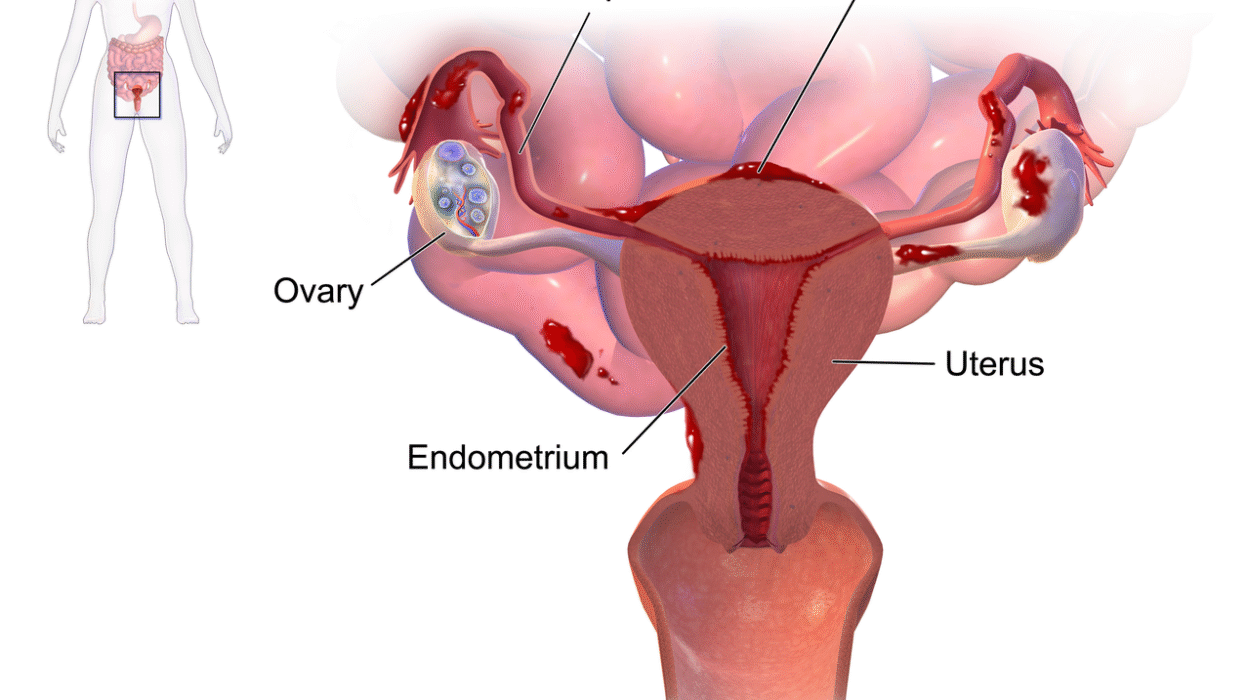Laughter is one of the few things that transcends culture, language, and time. It is the spontaneous eruption of joy that connects people in moments of lightness, whether shared between lifelong friends or sparked by a stranger’s joke on a crowded bus. Children laugh hundreds of times a day, while adults, often weighed down by responsibilities, laugh far less frequently. And yet, no matter how old we are, laughter has the extraordinary power to heal, connect, and transform.
The saying “laughter is the best medicine” has circulated for centuries, but in recent decades science has begun to uncover just how true it really is. Beyond being a fleeting expression of humor, laughter engages our bodies and minds in profound ways. It reduces stress hormones, strengthens the immune system, eases pain, and even protects the heart. But the benefits are not confined to the body—they ripple outward, shaping our social bonds, emotional resilience, and overall quality of life.
To understand why laughter is medicine, we must journey into the human brain, the chemistry of stress, the biology of health, and the psychology of joy. What we discover is both fascinating and inspiring: laughter is not a trivial indulgence, but a vital tool for wellbeing.
The Biology of Laughter
Laughter begins in the brain, triggered by humor, surprise, or the sheer delight of human connection. Neuroimaging studies show that when we laugh, multiple brain regions fire together—the prefrontal cortex (responsible for decision-making and social behavior), the limbic system (which governs emotions), and motor areas that coordinate the physical act of laughing. This synchronized activity makes laughter a full-brain workout, integrating thought, emotion, and movement.
Chemically, laughter releases a cocktail of feel-good neurotransmitters. Dopamine surges, providing a sense of reward and pleasure. Serotonin levels rise, contributing to mood stability. Endorphins, the body’s natural painkillers, flood the system, reducing physical discomfort and creating a sense of euphoria. Oxytocin, the “bonding hormone,” is also stimulated, deepening feelings of trust and connection with those around us.
From a physiological perspective, laughter also triggers the parasympathetic nervous system—the body’s “rest and digest” mode—counteracting the stress-induced fight-or-flight response. This is why laughter often leaves us feeling both energized and relaxed, with muscles loosened and breathing deepened.
Stress Relief Through Humor
Modern life is saturated with stressors: deadlines, financial worries, social pressures, and global uncertainties. Chronic stress can wreak havoc on the body, elevating cortisol and adrenaline levels that strain the cardiovascular system, suppress the immune response, and contribute to anxiety and depression.
Laughter acts as a natural antidote. Studies show that a good laugh lowers cortisol levels, easing the physiological burden of stress. The rhythmic contractions of the diaphragm during laughter increase oxygen intake, improve circulation, and stimulate relaxation. Just a few minutes of laughter can induce measurable changes in stress hormones, helping the body recover from tension more quickly.
Humor also reframes stress psychologically. Finding something funny in a difficult situation does not erase the challenge but allows the brain to perceive it with less threat and more resilience. This is why people who use humor as a coping strategy often fare better in the face of adversity. They are not ignoring their problems; they are arming themselves with perspective.
Laughter and the Immune System
The immune system, our frontline defense against disease, is deeply influenced by emotional states. Chronic stress and negative emotions weaken immunity, leaving the body vulnerable. Laughter, however, strengthens immune function in measurable ways.
Scientific studies reveal that laughter boosts the production of natural killer cells, which target viruses and tumors, as well as T-cells and antibodies that support overall immune health. Even watching a funny movie has been shown to elevate immune activity for hours afterward. In essence, laughter prepares the body to defend itself more effectively, offering a natural form of immunotherapy.
This is why laughter has found a place in hospitals and therapy centers. “Laughter yoga” sessions, clown doctors in pediatric wards, and humor-based interventions in oncology units are not frivolous entertainment; they are evidence-based strategies that support healing. Patients who laugh more often report lower pain levels, reduced anxiety, and better recovery outcomes.
The Cardiovascular Benefits of Laughter
Heart health is another arena where laughter works its quiet magic. When we laugh, blood vessels dilate, improving circulation and reducing blood pressure. This effect is similar to that of aerobic exercise, though less strenuous. Laughter essentially gives the cardiovascular system a workout, enhancing endothelial function—the ability of blood vessels to expand and contract—which is critical in preventing heart disease.
One study conducted at the University of Maryland showed that watching a comedy increased blood flow in participants by 22%, while watching a stressful film narrowed vessels by 35%. The implication is clear: joy fuels the heart, while stress constricts it. Over time, regular laughter may reduce the risk of atherosclerosis, heart attacks, and strokes, making it a truly heart-healthy habit.
Pain Management and Endorphins
Pain is not only a physical sensation but also an emotional experience influenced by mood and mindset. Laughter, through its release of endorphins, offers a natural pain-relief mechanism. Endorphins bind to opioid receptors in the brain, diminishing the perception of pain and inducing a sense of wellbeing.
Clinical studies have shown that patients exposed to humor during medical treatments report lower levels of pain and distress. Even short bursts of laughter can raise pain thresholds, making discomfort more bearable. This is why people in difficult circumstances often turn instinctively to humor—laughing through the pain is not denial but biology at work.
Laughter and Mental Health
The benefits of laughter extend powerfully into the realm of mental health. Depression and anxiety, two of the most prevalent mental health challenges worldwide, are often marked by patterns of negative thinking, social withdrawal, and chronic stress. Laughter interrupts these patterns, offering relief and perspective.
By stimulating serotonin and dopamine, laughter mimics the effects of antidepressant medications, enhancing mood and motivation. Humor also fosters cognitive flexibility—the ability to shift perspective and find creative solutions. This mental agility reduces rumination, the cycle of negative thoughts that fuels depression.
Group laughter, in particular, combats loneliness and social isolation, both of which are risk factors for poor mental health. Shared humor creates a sense of belonging, reminding individuals that they are not alone in their struggles.
Social Bonds and the Language of Laughter
Humans are profoundly social creatures, and laughter is one of our most powerful social tools. Unlike most other vocalizations, laughter is contagious—hearing someone laugh often triggers an automatic laugh in response. This shared rhythm fosters connection, trust, and intimacy.
Anthropologists suggest that laughter evolved as a social glue, enabling early human groups to bond and cooperate. In contemporary life, laughter still serves this purpose. Families that laugh together often report stronger relationships, workplaces infused with humor are more collaborative, and friendships built on shared laughter are remarkably resilient.
Oxytocin, the hormone of bonding, surges during shared laughter, reinforcing feelings of closeness. This is why inside jokes among friends feel so powerful—they are not merely words but symbols of belonging.
Laughter Across Cultures and Ages
Though humor varies across cultures—what one society finds funny, another may not—the act of laughter itself is universal. From remote tribes to bustling cities, from children to the elderly, laughter is woven into the human experience. Babies laugh before they can speak, suggesting that laughter is hardwired into our biology.
Across cultures, laughter is used not only for amusement but also for healing, teaching, and social cohesion. In some traditions, laughter is even considered sacred, a way of aligning the spirit with joy. This universality underscores its evolutionary importance: laughter is not a cultural luxury but a human necessity.
The Science of Laughter Therapy
Given its wide-ranging benefits, laughter has been harnessed intentionally in therapeutic settings. Laughter therapy, or humor therapy, involves the deliberate use of humor to promote healing and wellbeing. This can take the form of laughter yoga, comedic films, stand-up performances, or guided group exercises that encourage playful interaction.
Clinical evidence supports the efficacy of these approaches. Cancer patients who participate in laughter therapy sessions report reduced pain, less fatigue, and greater hope. Elderly individuals who engage in group humor activities experience improved memory, reduced loneliness, and better physical health. Even in corporate environments, humor workshops reduce burnout and increase productivity.
Laughter therapy works because it bypasses rational defenses. You cannot fake the physiological benefits of laughter; even forced laughter often transitions into genuine laughter, triggering the same endorphin release and stress reduction.
Laughter Versus Exercise and Other Interventions
Skeptics sometimes ask: can laughter really be compared to medicine? While it is not a replacement for medical treatment, its effects parallel those of established interventions. Aerobic exercise strengthens the heart, lowers stress, and boosts endorphins—laughter does the same on a smaller scale. Meditation reduces stress and enhances immunity—laughter activates similar parasympathetic pathways. Antidepressants elevate mood through serotonin and dopamine—laughter triggers these neurotransmitters naturally.
In this sense, laughter is complementary medicine, enhancing rather than replacing conventional treatments. It is accessible, inexpensive, and devoid of side effects. Few prescriptions are as universally available as a good laugh.
The Limits of Laughter
To appreciate laughter’s power, we must also acknowledge its limits. Laughter is not a cure-all. It cannot replace antibiotics, chemotherapy, or psychotherapy where these are needed. Nor can it erase trauma or eliminate structural causes of stress such as poverty or inequality.
Yet within its limits, laughter is profoundly effective. It may not solve every problem, but it makes the journey through hardship more bearable. It may not heal every illness, but it enhances resilience, reduces suffering, and improves quality of life. Laughter is not the medicine—it is the best companion to medicine.
Cultivating More Laughter in Daily Life
If laughter is medicine, then the prescription is simple: make space for joy. This may involve spending more time with friends who make you laugh, watching comedies instead of endless news cycles, or practicing laughter yoga to release tension. Even recalling funny memories or reading humorous stories can trigger genuine laughter and its benefits.
Children are natural teachers in this regard. They laugh easily and often, unburdened by the self-consciousness that dampens adult joy. Observing their spontaneity reminds us that laughter does not need to be earned; it is a gift waiting to be embraced.
Conclusion: A Serious Case for Humor
Laughter is more than a fleeting moment of amusement; it is a force that touches every dimension of health—biological, psychological, and social. It reduces stress, strengthens immunity, protects the heart, alleviates pain, uplifts mood, and binds people together. Science validates what wisdom has long intuited: joy heals.
In a world fraught with challenges, laughter offers not denial but defiance—the courage to face life’s difficulties with lightness and resilience. When we laugh, we remind ourselves and each other that even in hardship, there is hope, connection, and meaning.
So the next time laughter bubbles up—whether from a silly joke, a shared story, or an unexpected moment—embrace it fully. Your body, mind, and relationships will thank you. And science assures us: this simple act of joy is indeed one of the best medicines we have.






